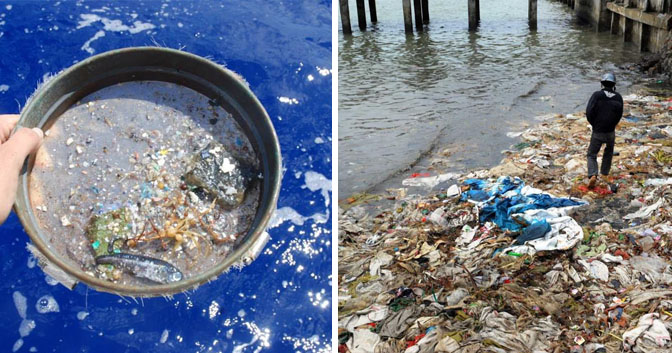Plastic, once heralded as a revolutionary material due to its versatility and convenience, has now become a global issue endangering our environment, ecosystems, and human health. Plastic pollution, defined as the accumulation of plastic garbage in our seas, rivers, and landscapes, is a significant issue that must be addressed immediately. This paper investigates the causes, implications, and potential solutions to the frightening problem of plastic pollution.
Single-use plastics, like bottles, bags, and packaging, contribute to plastic pollution. Inadequate waste management, especially in poor nations, leads to microplastics, tiny particles less than 5mm in size, entering ecosystems and being consumed by marine creatures.
Plastic Pollution Causes:
Single-Use Plastics: The widespread use of single-use plastics such as bottles, bags, and packaging has considerably contributed to plastic pollution. These things are frequently used quickly but remain in the environment for centuries, slowly decomposing into microplastics.
Plastic garbage is incorrectly disposed of or scattered as a result of inadequate waste management infrastructure, particularly in poor nations, and eventually finds its way into water bodies and ecosystems.
Microplastics are tiny plastic particles less than 5mm in size that are released by bigger plastic goods, synthetic clothes, and personal care products. They enter the ecosystem and are consumed by marine creatures, becoming part of the food chain.
Plastic Pollution’s Effects:
Marine Life Threat: Marine creatures mistake plastic trash for food, resulting in ingestion and entanglement. This has serious implications for their health and survival, as well as affecting marine ecosystems. Plastic pollution has an impact on terrestrial ecosystems as well, as litter and garbage disrupt habitats and endanger wildlife on land.
Microplastics in water, air, and food pose possible health dangers to humans because they can build in the body. Plastic manufacture chemicals can also leech into the environment, damaging water quality and ecosystems.
Economic Impact: Tourism, fisheries, and coastal businesses suffer as plastic pollution taints natural landscape beauty and depletes marine resources.
Marine life is threatened by plastic pollution, causing ingestion and entanglement, affecting marine ecosystems and terrestrial ecosystems. Microplastics in water, air, and food pose health risks to humans and the environment. Plastic pollution also depletes marine resources, affecting tourism, fisheries, and coastal businesses.
Possible Solutions:
Reducing Plastic manufacture: Governments and companies must collaborate to limit single-use plastic manufacture. This includes encouraging sustainable alternatives and investing in biodegradable material research.
Improving garbage Management: It is critical to have proper garbage collection, recycling, and disposal procedures in place. Individuals can be encouraged to dispose of rubbish responsibly through education and awareness initiatives.
Circular Economy Promotion: A circular economy approach entails designing items for reuse, recycling, and little waste. It promotes product design and material innovation.
Individual Contribution: Everyone can help by limiting their use of single-use plastics, practicing proper waste disposal, and advocating for plastic-free alternatives.
Plastic pollution is a worldwide issue that necessitates international cooperation. Plastic manufacturing can be limited, recycling encouraged, and plastic waste reduced by agreements and regulations.
Governments and companies must collaborate to reduce single-use plastic manufacture, promote sustainable alternatives, improve garbage management, promote circular economy, and encourage individual contributions. International cooperation is needed to limit manufacturing, encourage recycling, and reduce plastic waste through agreements and regulations.
Plastic pollution has risen to the level of a global environmental calamity, affecting every corner of the earth. The importance of addressing this issue cannot be overstated, given its influence on marine life, ecosystems, and human health. We can prevent plastic pollution and secure a cleaner, healthier planet for future generations by adopting sustainable practices, raising awareness, and campaigning for policy reforms. We have a choice: either let plastic continue to pollute our globe or take decisive action to protect our planet’s beauty and vitality.

